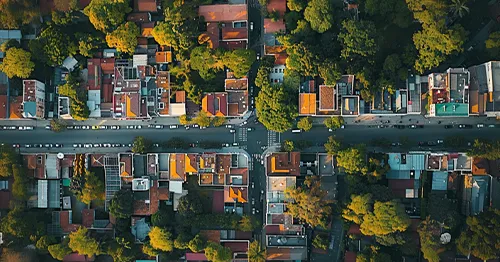Updated: 29 Jul, 2024

Did you know that there was a time when Australians were given acres of land for free by the government?
How times have changed!
When you’re not paying a premium for prime real estate in a good location, you’ll also need to cover the costs of stamp duty, legal costs, including solicitors fees and transfer of title, home loan fees and Lenders Mortgage Insurance (LMI).
The history of land grants in Australia is a fascinating story involving British convicts and rebellion, so how did it all start?
The First Settlement
25 April 1787
A few years after Australia was settled, Governor Arthur Phillip had the authority to grant land to the British convicts who were transported to Australia. The convicts could only be granted land after receiving a partial or complete pardon.
Each male was entitled to 30 acres, an additional 20 acres if married and additional 10 acres for each child with him.
20 August 1789
To encourage free settlers to the new colony, the British government sent out additional instructions to Phillip, which entitled non-commissioned Marine Officers to 100 acres and privates to 50 acres of land.
The First Land Grant
3 January 1792
James Ruse became the first man to receive a land grant in Australia. He was a farmer from Launceston, England who was convicted of breaking and entering and was sentenced to 7 years’ transportation in Australia.
Although he was granted the land in 1789, he didn’t receive his allotment in Parramatta in Western Sydney until 3 years later when his sentence expired in 1792.
22 August 1794
Ann Robinson became the first woman in Australia to be granted land.
The Rum Rebellion
1808
The Rum Rebellion was the armed takeover of the colony in Australia by a military coup in 1808.
The rebellion started in 1806 when John Macarthur, a wool businessman and a former NSW Corps officer who had significant influence in the colony at the time, was put on trial after authorities found an escaped convict on one of his trading ships.
The jury of Corps officers refused to hand down a sentence to Macarthur so the NSW Governor William Bligh threatened to charge the whole Corps with treason. This led to the military coup which overthrew Bligh.
To put an end to the rebellion, Major-General Lachlan Macquarie was appointed as governor of NSW by the British government in April 1809.
Macquarie officially proclaimed the uprising to be illegal and cancelled all land grants that had been granted during the period of rebellion. However, to avoid any revenge, he renewed the grants that he deemed were valid.
Land grants halted
17 July 1825
Royal instructions were issued to the Governor of Brisbane ordering a general survey of the colony and its division into counties, hundreds and parishes. There would be no land grants until the survey was completed.
The Deeds Registration Act was introduced in 1825, directing the governor to register grants in a court of record.
The Old System Deeds Register started recording land transactions on 16 November 1825, the same day as the appointment of the first Registrar of Deeds.
The year when land stopped being free
1831
Free land grants were abolished under the orders of British Prime Minister Frederick John Robinson on 9 January 1831. However, the grants that were already promised were followed through.
Australia was divided into 19 counties in 1829 and the settlers in Australia were permitted to take up land only within these boundaries. Despite the prohibition against settlement outside the permitted area, many people continued occupying lands for pastoral and other purposes.
As a result, in 1836, the Squatting Act included the provision of issuing licences to settlers to graze their livestock in the vacant lands outside the Nineteen Counties.
The property market today
Unfortunately, you’ll have to be more than a criminal to buy a property in Australia in the 21st century (although it kind of depends on how good a criminal you are).
Property prices have skyrocketed over past decade with Sydney now one of the top 10 most expensive cities in the world.
Check out our home buying process guideline to get a clearer understanding of what you’ll need to buy a home in today’s world.
Better yet, if you’re not too sure what you need to do to own your own piece of the Australian dream, call us on 1300 889 743 or complete our free assessment form to speak with one of our experienced mortgage brokers.
We can help you qualify for a home loan that’s right for you!





